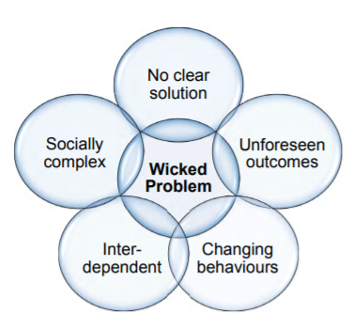
She was invited to speak about how boundary organizations – such as NGOs - can help academics engage more in the policy process.
Protecting water resources in the face of climate change is a wicked problem that requires all hands on deck, which requires the inclusion of interdisciplinary academic science and research.
In her presentation, Nancy suggested that boundary organizations are an important part of the solution and that academic researchers should consider strengthening their relationships with these types of organizations.

Boundary organizations – such as think tanks, non-government organizations (NGOs) and community groups - typically have capacity, networks and strategic experience in managing science-policy interfaces. As such, they can often support long-term relationship building, promote two-way communication, and facilitate the strategic development and uptake of knowledge translation tools.
Nancy illustrated the power of working with boundary organizations using the example of a collaboration between Global Water Futures (GWF) and the NGO, FLOW (Forum for Leadership on Water). When the federal government proposed establishing a new Canada Water Agency, GWF and FLOW came together to argue that this is an opportunity to create new linkages between academic research and government programs, policy and decision-making.
They did this through a series of workshops, and a public report, where GWF’s contribution was a set of strong scientific-based arguments and FLOW helped describe what would be necessary in terms of a legislative and governance structure. These complementary perspectives together created a more comprehensive picture of the potential than either organization would have been able to offer on their own.
Ultimately, Nancy suggests that it can be incredibly powerful to unite voices where possible to broaden the influence and reach of your efforts.